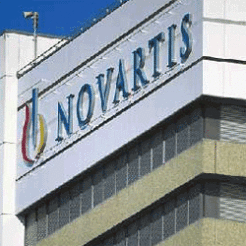The Royal National Institute of Blind People (RNIB) has dismissed allegations that its refusal to endorse a cheap drug found to prevent a type of blindness is related to the fact that it receives donations from the maker of a rival, more expensive drug.
RNIB says that its endorsement of the drug produced by pharmaceutical company Novartis, which is a donor to the charity, will continue until the cheaper alternative is determined to be safe by UK health authorities.
Research by Moorfields Eye Hospital released last week shows that the cancer drug Avastin can help to prevent wet age-related macular degeneration (AMD), which can lead to blindness. Avastin is significantly cheaper than the current treatment Lucentis, produced by Novartis.
The RNIB was accused of conflicted interests, in a blog which followed the research. The writer, Jim Edwards, suggested that there was “a connection” between RNIB's status as a recipient of funds from Novartis and its support of the company’s products against cheaper rivals.
But the RNIB steadfastly denied any allegations of bias. In a statement, the charity said that its position on the drugs “is in absolutely no way linked to any funding the charity might receive from pharmaceutical companies”.
The National Institute for Health and Clinical Excellence (Nice) has been asked to investigate the use of Avastin for sight loss, and RNIB said it will not change its position on the drug ahead of Nice’s research conclusions.
The charity said it worked to develop strong ties with pharmaceutical companies in the field of eye disease, but that funding from such companies in the last financial year accounted for less than 0.35 per cent of RNIB's total income of £96m.
“RNIB is very much aware of the importance of ensuring that our relationship with pharmaceutical companies stands up to close scrutiny. We will not embark on, or continue with, any sponsorship arrangement or collaborative venture which might damage our independence or impact on our ability to represent the interests of our beneficiaries in the best possible way,” the charity said.
“It is important that wherever possible, RNIB maintains positive relationships with pharmaceutical companies who have an interest in developing drugs and treatments for people with eye disease. These relationships enable us to promote the needs of current and future patients. We have relationships with a number of companies whilst maintaining our independence.”








